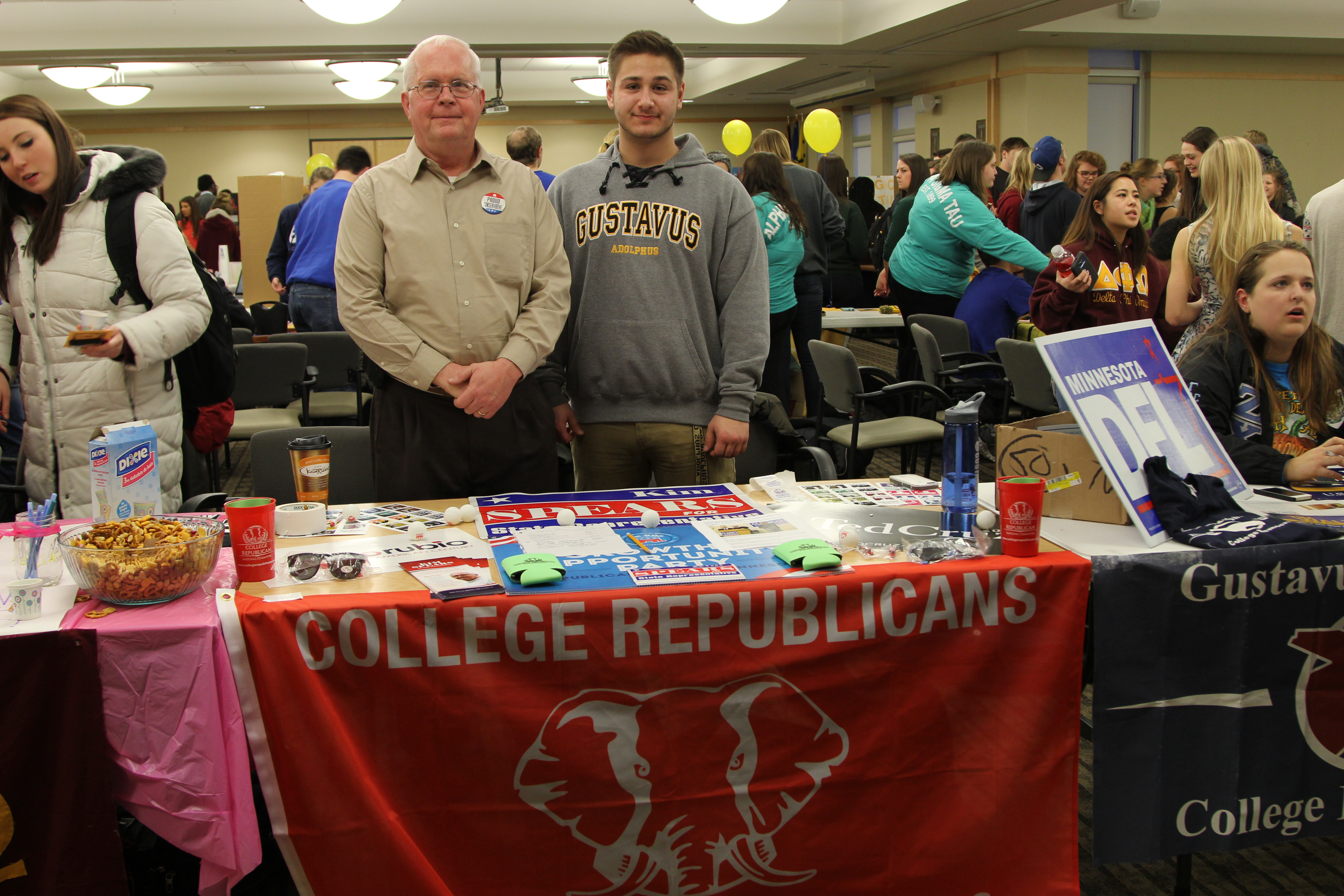In the age of outrage, where offense is currency and political differences have polarized, college campuses must combat the urge to insulate students in an ideological echo chamber.
It would be silly to pretend that the Gustavus community is representative, let alone remotely resemblant, of American society. The truth is that we are a remarkably liberal campus, steeped in social and political activism for many progressive causes.
In class, we often engage with openly liberal professors, and our peers have no shame wearing their progressive beliefs on their sleeves. At Gustavus, liberal students are at home.
That sentiment was certainly true for me, until a certain captain of the Reserved Officers’ Training Corps made it his personal mission to force the “grass-smoothie-eating” liberal students of Gustavus to engage with conservative ideas during his J-term class.
This captain of the ROTC was a visiting professor of military history, and right off the bat he made it abundantly clear to us that he had no interest in political correctness.
And he really didn’t, as he promptly demonstrated by referring to the course textbook as a “man-book.” After picking my jaw up off the floor, I realized something. I was offended!
The second day of the course, I returned, curious to hear what blasphemy the conservative captain would say next. During roll, he was shocked to see that three of the six total women in the course dropped. He wondered aloud why they would leave, although I could think of a few reasons…
During that first week, I was tempted to drop the course as well. I thought he was too much, his ideas and speech too conservative and too offensive.
But just when I was going to make my great escape from the unsettling course and professor, I realized that I didn’t need to remove myself every time I was bothered or offended.
It occurred to me that I wasn’t harmed by hearing the captain’s teachings. Though I often disagreed with nearly everything he said, and I was sometimes offended, there was no true harm in engaging with his speech.
We weren’t expected to adopt his conservative ideology. On the contrary, the captain openly invited dissent from students. He challenged us to challenge him.
I took him up on his offer. The result was a spirited class debate, and it was a rare opportunity where we were engaged in an argument with a conservative professor. Too often it seems that class discussions at Gustavus quickly devolve into an echo chamber, where students parrot the same tired liberal arguments to each other and to their professors.
Furthermore, I have seen the effects of prior restraint as a result of hyper-political correctness. Student conversation is stifled for fears of saying the wrong thing or of being misunderstood. For better or for worse, there was no such fear in the captain’s class!
In the culture of increasingly policed campus dialogue, it became frankly refreshing to be in a course led by a professor with a different political ideology. Though he was still offending me and my progressive ideals, I was learning far more with him than I would with another liberal professor.
The captain not only forced me to defend my beliefs, he directly confronted me with a starkly different worldview. Strictly conservative voices are hard to come by on the hilltop in St. Peter.
However, in the real world off-campus, conservative voices abound. The bleeding-heart liberals of Gustavus will soon make their way into greater American society, and will be confronted with people whose speech we disagree with.
Yes, these people are out there, and you’ll know them by their Trump bumper stickers. Although to be fair, even the captain thought Trump was crazy, and lamented the fact that a President Trump would “probably get us into a couple of wars.”
The point being, by engaging with a variety of political ideologies and their subscribers early on in college careers, students are better prepared to go out into the world and face the reality of divisive contemporary American politics.
We are watching the results of polarized political ideologies in the current fight to fill the newly emptied seat on the Supreme Court. With Senate Republicans declared refusal to hold any hearings at all for President Obama’s future nominee, the message is clear: there is no room for engagement or conversation between Democrats and Republicans, liberals and conservatives.
It is ironic that the very seat they’re fighting about was formerly filled by Justice Antonin Scalia. Though he was devoutly conservative, to the point of offense in his rulings towards many groups of people, he had a legendary friendship spanning many decades with liberal Justice Ruth Bader Ginsburg.
Though they couldn’t be more opposite in ideology, they shared a mutual respect for one another, often spending New Year’s Eve together. They also challenged each other, forcing each other to refine their opinions and, in the process, making each other better justices.
There is value in confrontation with differing opinions. Though I disagreed with the captain, I learned from him. I learned that it does me no good to sit and simply be offended.
It is far more powerful to speak out for what I believe in, and to challenge authority and to engage with the people and ideas I disagree with. I learned that vocal dissent is far more powerful than silent offense.
I credit the captain with welcoming this dissent. Despite everything, the one thing he and I could wholeheartedly agree upon was the value in engaging in these conversations. Well, that and the fact that Trump is a nutjob. That was a no-brainer.
